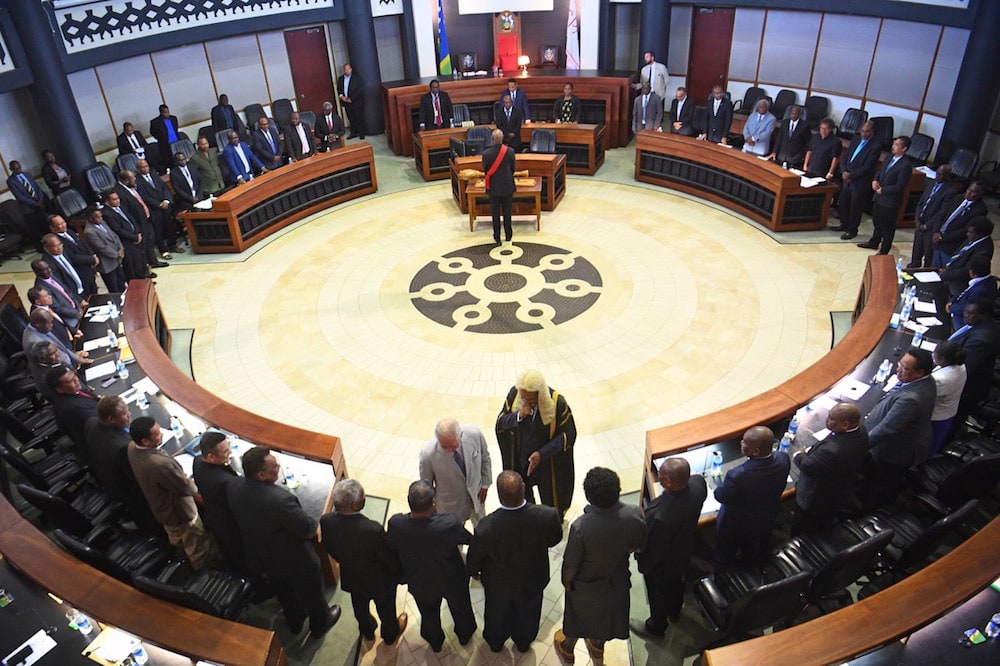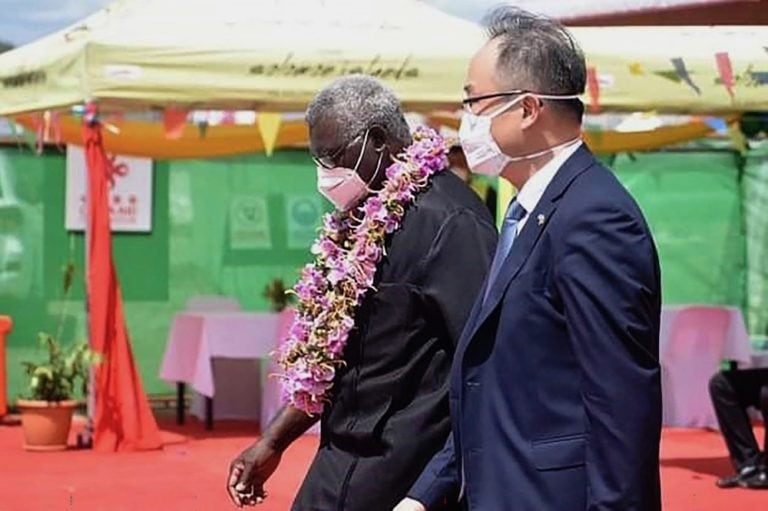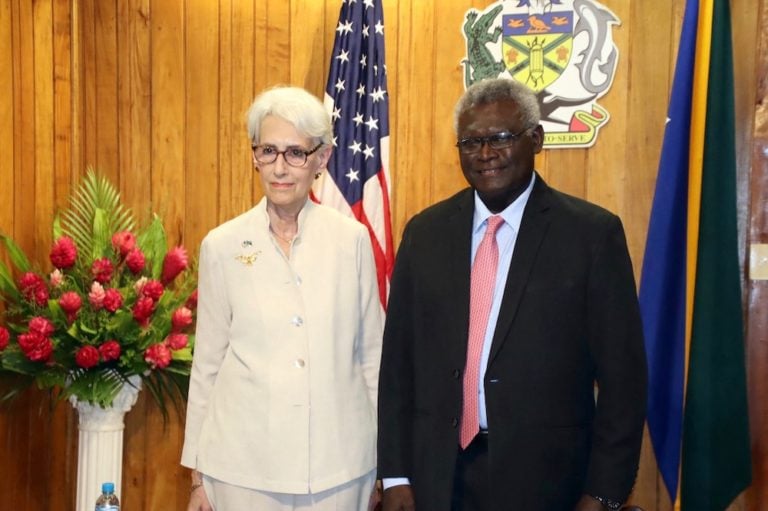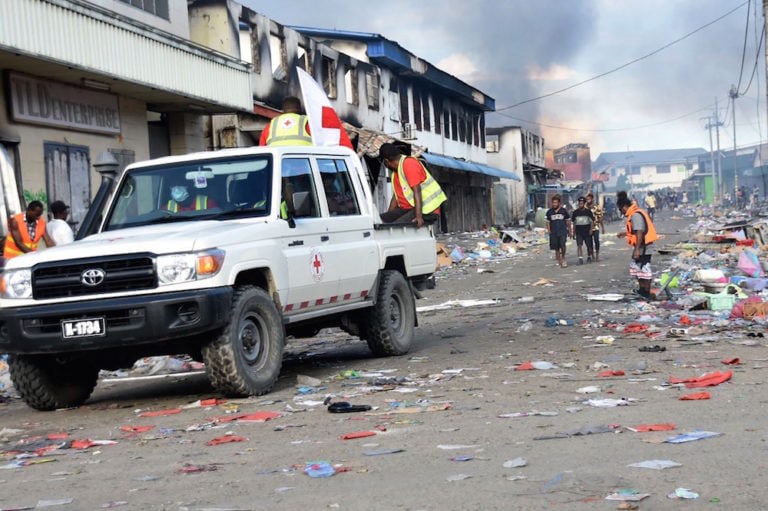The Facebook ban or suspension is seen by critics and the opposition as an attempt to silence citizens who are exposing irregularities in government.
This statement was originally published on advox.globalvoices.org on 21 November 2020. It is republished here under Creative Commons license CC-BY 3.0.
The Cabinet of Solomon Islands has issued a temporary ban on Facebook for what it considers ‘harmful content’ disseminated on the social media platform. It is unclear when the ban will begin and how long this will last.
The ban was proposed by Prime Minister Manasseh Sogavare and Communication and Civil Aviation Minister Peter Shanel Agovaka.
Agovaka told Solomon Times why the Cabinet came up with this decision:
Abusive languages against Ministers, Prime Minister, character assassination, defamation of character, all these are issues of concern.
The use of the internet now in Solomon Islands needs to be properly regulated to safeguard our young people from harmful content. At the moment there is no legislation to govern the use of the internet and even young kids are able to download harmful stuff from the internet.
Agovaka said the government has not yet finalized the details with internet service providers about how the ban will be enforced. He added that press freedom will not be affected since citizens can still publish or air their sentiments on other media platforms.
There are 120,000 Facebook users in Solomon Islands.
The announcement garnered widespread criticism which prompted Permanent Secretary of Communication and Aviation Moses Virivolomo to clarify that Facebook is merely being suspended. But the official gave no timeline about the suspension.
The Facebook ban or suspension is seen by critics and the opposition as an attempt to silence citizens who are exposing irregularities in government.
Opposition Member of Parliament Peter Kenilorea Jnr reminded the Cabinet about the importance of upholding freedom of expression in a democracy:
As leaders, we will face resentment from factions of a demanding and at times dissatisfied public. Much of the dissatisfaction and mistrust, whether real or perceived, will be aired. Sometimes these need to be aired. After all, we, leaders, need to be held accountable by the electorate that place us in positions of power. We need to face the music from time to time. This is democracy.
But as leaders, let us not attack one of the main pillars of democracy upon which our nation rests – freedom of expression. Let us not mute the voices, however angry, of those that we have sworn to serve.
Malaita Provincial Premier Daniel Suidani, a local official, also disagreed with the decision to ban Facebook:
Do not go into public life and make laws and decisions for your own good or for your own protection as is seen with the banning of Facebook.
Doing this will only lead to further frustrations. You can be guaranteed that going against your people only leads to failures.
The business sector is not supportive of the ban. Jay Bartlett, the board chairperson of the Solomon Islands Chamber of Commerce and Industry (SICCI), said the Cabinet should be focusing on other more important matters. “It is the Government’s prerogative to make such a decision, but as a Chamber we believe that there are other pressing issues that require our collective focus.”
Ms Gloria Hong, a member of SICCI representing small businesses, argued that Facebook is an essential platform to interact with consumers.
Using social media helps us to build brand awareness, increase our customer base, and connect with customers.
In my view, banning Facebook is a threat to businesses, especially the small businesses who cannot afford to run advertisements on radio, newspapers and on TV.
Tourism Solomons CEO Josefa ‘Jo’ Tuamoto warned about the repercussions for the tourism industry:
It goes without saying the platform has become vital in our efforts to keep the Solomon Islands top of mind and competitive on the world tourism stage for the time when things return to normal.
No other social media platform comes even close to what we have been achieving with Facebook.
And not just for our tourism sector, but for all Solomon Islands businesses and the wider community in general which uses Facebook as a key means of communication across our 992-island archipelago.
In a letter sent to the Solomon Times, Floyd Manata from Port Moresby said banning Facebook is not the solution:
We need to be very careful about dealing with certain things regarding this time where the world technology is changing every 6 months. Today it’s Facebook, next year probably TikTok. But hey think again, is this the best solution to the problem?
Before you ban Facebook you should establish or come up with policies that will facilitate the issue of cyber crime and cyber security. Do we have one in place at the moment?
Facebook told ABC Australia that it is ready to discuss the issues raised by the Solomon Islands government:
We’re reaching out to the Solomon Islands government to discuss today’s decision.
This move will impact thousands of people in the Solomon Islands who use our services to connect and engage in important discussions across the Pacific.
Amnesty International’s Pacific Researcher Kate Schuetze said the ban will deprive users of vital information that can save lives during a pandemic.
Given how important it is for people to quickly access information in the context of the COVID-19 pandemic, the government may not just place political discourse and participation at risk, but even lives. Total bans on websites or internet information providers will almost never be justifiable under international human rights law.
Dan McGarry, an independent journalist living in Vanuatu, has a proposal for Pacific governments which are unhappy over the social impact of Facebook and has considered plans to censor or ban the popular social media website:
Pacific governments need to start a dialogue, not just with social media giants, but with other national regulators too. They need to learn from others’ mistakes, and leverage others’ successes.
Written by Mong Palatino



